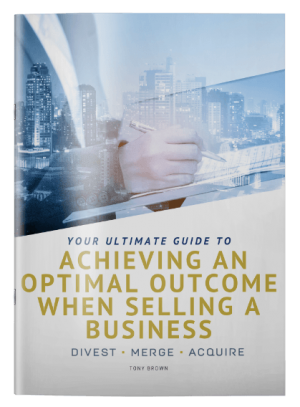When structuring a business purchase or sale transaction you have two basic options: Asset sale, or Share sale. While the choice may sound simple, choosing the wrong structure can drastically impact the after-tax position of both buyer and seller, making what was an attractive offer look all but disappointing in their respective bank accounts.
In the Australian M&A market for top-end SME’s, transactions are structured either as Asset or Share Sales in roughly equal proportions. There are many reasons for and against the sale or acquisition of assets vs. shares.
This article is intended as a high-level guide to flag some of the key factors for consideration under each of these structures. When buying or selling a business, it is critical to obtain independent advice from accounting, tax and legal advisors prior to committing to a particular structure to ensure the best choice is made.
Under both sale structures, the valuation and price negotiation is usually based on the unencumbered Enterprise Value (EV) regardless of the final transaction structure.
Asset Sale
Under an Asset sale, the assets of the business are sold and transferred into the buyers trading entity. In this scenario the seller retains ownership of the current trading entity and company structure, and all business assets are transferred to the purchaser, ie. plant and equipment, stock and WIP, business name and other IP, goodwill.
- Although trade debtors and trade creditors are not usually sold, they are almost always included in the net working capital calculation as part of the overall EV.
- Equipment is normally sold unencumbered, but occasionally the finance arrangements may be assigned to the buyer with the consent of the financier. It may be attractive to the buyer to do this depending on the term of the loans and how mature the loans are. A loan where the interest is calculated on the ‘rule of 78’ may favour buyers taking on these loans.
- Purchasers may also seek to acquire the existing trade debtors if part of their funding facility includes debtor finance, because to qualify, the buyer must hold title to the assets against which the finance is secured.
- If the assets to be sold are held by more than one entity, the seller may comprise a number of entities which can usually all be listed in one single sale agreement.
- As the business’ legal entity is not being transferred, tax losses are not transferable to the purchaser.
- Asset sales are subject to Stamp Duty in some Australian States, and may also attract GST. Both will need to be considered and factored into the overall transaction.
- Asset sales generally pose a lower tax and liability risk to the purchaser as the legal entities, along with all associated encumbrances (both known and unknown at the time of settlement), remain with the seller.
Share Sale
Under a Share sale, Shares in the legal entity/entities holding the business assets are transferred to the purchaser on settlement. This may involve the sale of the shares in the trading entity, related entities and occasionally units of a unit trust.
- It may be easier to sell the shares than re-assign or novate large numbers of contracts or licences.
- Even where shares are sold, the existing business loans are usually paid out at or before settlement.
- Share transactions are usually more complex and require more sophistication all round. In general, there are more ‘moving parts’ to a share purchase agreement.
- In some instances, where there are multiple vendor entities, included assets may need to be transferred in or sold separately, and other assets transferred out. These preparatory transactions may result in stamp duty being payable by the seller’s entities before the ultimate sale to the buyer.
- There may be more flexibility to structure the transaction to optimise the after-tax outcome for the seller.
- There may be franking credits or tax losses to consider and to forego, use or transfer to the buyer.
- There may be future tax liabilities resulting from the adoption of tax effect accounting. These may need to be negated by the parties agreeing not to adopt this particular accounting principle in the completion accounts.
- There is increased risk to the buyer due to acquiring additional contingent liabilities from the past.
- Stamp duty is generally not payable on share transactions, which may make it more attractive to acquire the shares in States where stamp duty is applicable to Asset Sale transactions. If the shares are being acquired in an ‘asset rich’ company, stamp duty may still be payable on the tangible asset component.
- As ownership of a legal entity is being transferred to the purchaser, share acquisition transactions require more extensive Due Diligence (DD) to detect any potential liabilities attached to the transferring entities. In particular, Tax and Legal DD are areas of particular concern. This leads to greater transaction costs for the buyer.
- More stringent requirement for the entity to be ‘cleaned up’ before being handed over, eg. all issues need to be scrutinised and rectified or provided for before the company is handed over. These may include unpaid FBT liabilities, Payroll tax and restructure costs. It may even become more costly to clean these up than sell the assets and later liquidate the entity.
- If the seller requires it to be a share sale transaction, they and their advisers should undertake a more comprehensive vendor DD review prior to going to market to ensure the entity is ‘clean’ so there are no hold-ups or show-stoppers later.
- More extensive warranties are required of sellers by the purchasers to overcome the increased risk from transfer of a legal entity.
- Where the shares are to be sold, allowance needs to be made for income tax for previous years’ and the current YTD’s trading, just as it would be payable by the seller if they had retained the entity.
Determining the optimum transaction structure for you can be a complex process. It is important to liaise with tax and legal advisors early on to determine the optimum transaction structure from both the purchaser’s and seller’s positions. In many cases, there are pro’s and con’s and no clear cut advantage either way.
Although Divest Merge Acquire’s team includes qualified accountants, we do not provide specialist tax, legal or accounting advice to clients or anyone else. We have sufficient knowledge to recommend to our clients that they seek appropriate advice and usually lead negotiations through to resolution of the various components.
When large transaction values are involved, it makes sense to obtain a second opinion from a tax specialist, in the same way as you would consult a medical specialist and even obtain a second opinion about a significant medical condition.
Where applicable, Divest Merge Acquire can refer clients and their advisors to specialist tax or legal advisors to ensure the seller’s team is equal in sophistication to that of the buyer.

